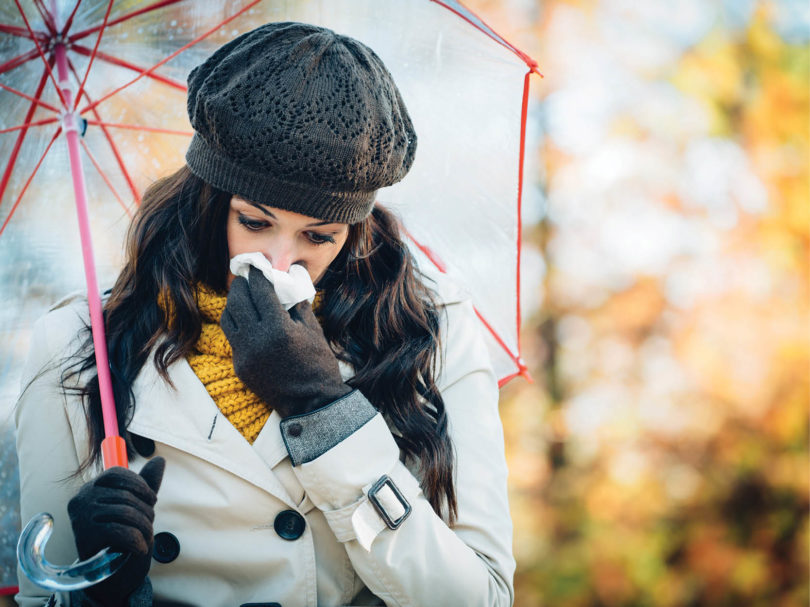Everyone around you is sniffling and coughing up a storm. You’ve got that big trip coming up, or that important presentation, and the last thing you want is to get a cold that leaves you bedridden. What can you do to prevent a cold from coming on?
Adults average 2-3 colds a year, and children have even more, according to the Center for Disease Control. First comes the sore throat and the runny nose, then the coughing and sneezing starts. It takes about 7-10 days to recover from a cold, the CDC says.
Dr. Greg Morper, who practices internal medicine in Lakeway, Texas, says the common cold can be brought on by several hundred viruses that bring all types of symptoms and affect people in different ways.
“It’s not one germ that does it,” he says. The common cold season, according to him, runs until late March or April, or “as long as people are huddled together in concentrated groups.”
His general advice? “Treat your body well when it’s facing an infection.”
Here are some steps you can take when you feel a cold coming on.
Gargle salt water
Dr. Dana Garcia, a family medicine physician at Austin Regional Clinic, says warm salt water gargles or nasal saline rinses can make you feel better by breaking up mucus and clearing it from your nasal passages and throat.
Morper says the salt soothes the lining of the throat and balances out our internal salt levels. He also recommends using a saline nasal wash, especially if your nasal passages are clogged or you’re experiencing sinus problems related to a cold.
Try supplements
At the first sign of symptoms, Dr. Rob Hicks, a part-time general practice doctor, advises taking Echinacea, an herb generally used to fight infections.
In a 2007 University of Connecticut study, researchers found Echinacea cuts the chances of catching a common cold by 58 percent and reduces the duration of the common cold by almost one-and-a-half days.
Morper says it’s hard to tell if Echinacea works, because some studies show taking it makes no difference in how long the cold lasts. He says it also comes with side effects like nausea.
Vitamin D is another suggested vitamin to explore, because it regulates autoimmunity and helps fight off infections, according to Dr. Amy Myers, author of The Thyroid Connection and The Autoimmune Solution.
Hicks also recommends taking a probiotic, which will lessen the chance of viral coughs and colds taking hold of your immune system.
Morper says contrary to popular belief, studies on products like Emergen-C and Airborne failed to show any benefits on relieving symptoms of a cold.
Stay hydrated
Morper says one of the easiest things to do in the onset of a cold is to drink plenty of fluids. Warm liquids like chicken noodle soup—which also contains plenty of salt—and hot tea can help with cold symptoms.
Garcia agrees, saying the steam from the tea can help your nose clear germs, and warm tea with honey can help soothe the throat and cough, because honey has some antibacterial properties.







